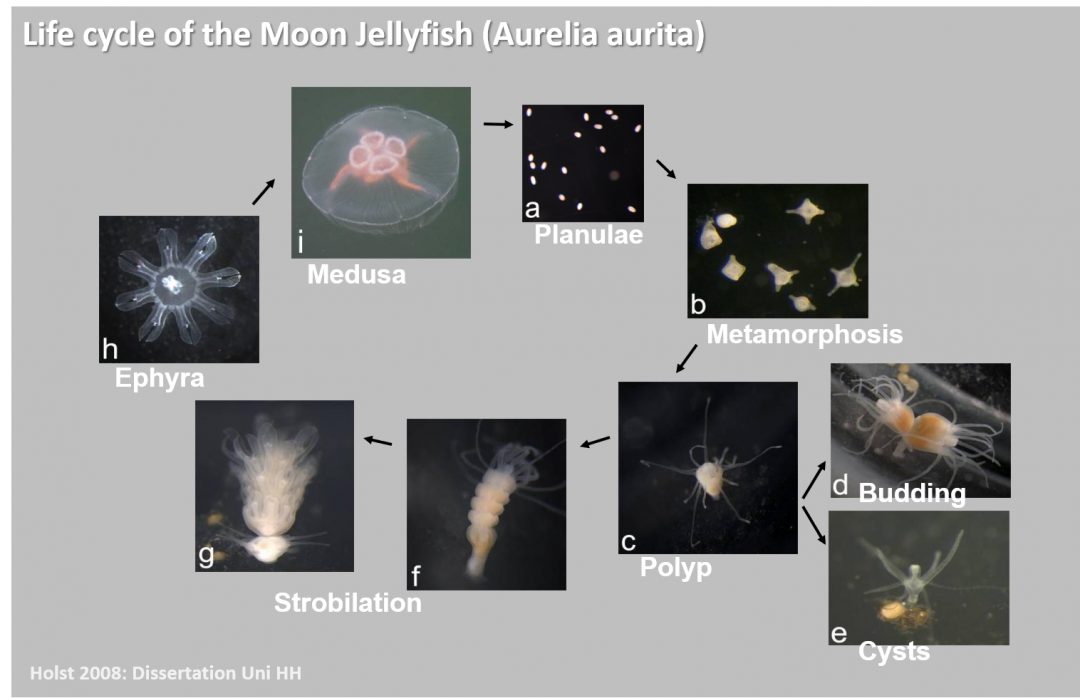Live culture
Laboratory cultures of living Cnidaria species, realized at the DZMB in collaboration with the University of Hamburg (Dr. Ilka Sötje), is an important method to investigate the life cycles of selected species and to document morphological characters of different life stages.
Many cnidarian species have a complex insufficient investigated life cycle with several asexual and sexual reproduction strategies. In most scyphozoan jellyfish species the large medusae are produced asexually by small and inconspicuous, sessile polyps which are often poorly known.
Environmental factors, like climate change, overfishing and eutrophication affect the development of medusae. These factors are discussed as the main causes for the increase of jellyfish mass occurrences which have been noticed worldwide in the last few decades. In temperate climate zones scyphozoan medusae usually occur from spring to autumn before they degenerate after the sexual reproduction phase. Polyps however, can survive for several years, producing young medusae (ephyrae) every year in a process called strobilation. Therefore, the development of the polyp populations plays a crucial role for the development of the medusa populations. Live cultures are useful to investigate the effects of environmental factors on the development of polyp and medusa populations (Holst 2012, Lesniowsky et al. 2015, Alguéro-Muñiz et al. 2016, Goldstein et al. 2017).
